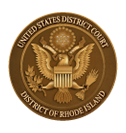It is the mission of this court to do everything it can to help parties resolve their disputes as fairly, quickly and efficiently as possible. The cases filed in our court present a wide range of issues and circumstances. No single process can be expected to meet the needs of all of these cases. The Court’s ADR program offers litigants several non-binding alternative dispute resolution (ADR) options that may resolve cases fairly, efficiently and with less expense than cases that are fully litigated. ADR processes offer numerous advantages over litigation. In contrast to litigation and adjudication at trial, ADR may lead to resolutions that are:
- faster
- less expensive
- more creative, and
- better tailored to the needs and underlying interests of the parties.
ADR is most effective when the process and timing are tailored to meet the needs of the parties in a particular case. It’s important to consider early on what information you need to exchange in order to be prepared for a meaningful settlement discussion, when to have an ADR session, and what type of ADR is most likely to help the parties resolve their dispute. The judges of the court make it a priority to discuss these ADR questions with you usually at the initial case management conference.
Alternative Dispute Resolution (ADR) is an informal, non-binding process in which a neutral person works with the lawyer and the parties to help them settle the case and/or streamline the litigation. The Court offers a range of alternative dispute resolution (ADR) options, including mediation, early neutral evaluation, and judicial settlement conferences. Each ADR process meets different needs and circumstances. When selecting an ADR process, you should: Generally at your initial case management conference, the judge will help you to select the best ADR process and timing for your case. This may include the recommendation of seeking the services of a private mediator or a referral to a magistrate judge. Due to resource constraints, referral to an early settlement conference with a magistrate judge generally is limited to circumstances in which a settlement conference is appreciably more likely than mediation to help the parties’ settlement efforts. Although most cases can benefit in some way from ADR, some cases might be better handled without ADR. These include suits in which: If your dispute might benefit from one or more of the listed advantages, you should give careful thought to selecting the most appropriate process for your case.
What is ADR and how can it help my cases?
Which ADR process is best for my case?
Are there some types of cases in which ADR won't be helpful?
ADR Documents:
ADR Plan Summary - 6/30/2016
ADR Plan - 3/6/2006
ADR Panel - 5/20/2020
ADR Panel Application - 4/10/2008
Mediation Briefing Guidelines - 6/30/2016
We have committed substantial resources to our ADR program because we are confident that litigants who use ADR can in many cases save significant money and time, as well as retain greater control over the uncertainties of litigation outcomes through structured negotiation and settlement.
For more information or questions contact:
Michael Simoncelli
United States District Court
District of Rhode Island
Providence, RI 02903
Phone: (401) 752-7221
Email Address: Michael_Simoncelli@rid.uscourts.gov
